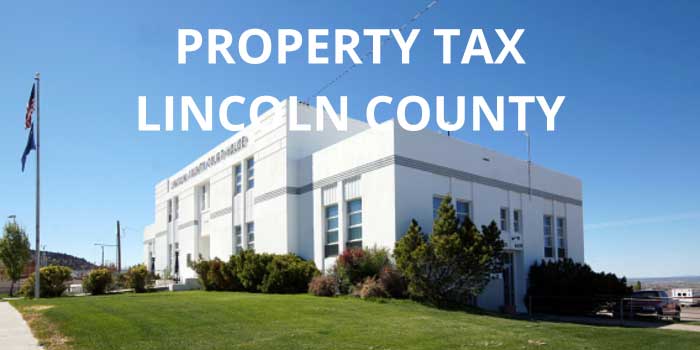Property Tax Lincoln County

Lincoln County is one of the many counties in the United States that levies property taxes to fund local government services and initiatives. Property tax in Lincoln County is assessed based on the value of real estate properties owned within its jurisdiction. Property owners in Lincoln County are required to pay this tax annually, with the amount due determined by the county’s tax rate applied to the assessed value of the property. These taxes play a crucial role in supporting vital public services such as schools, roads, public safety, and infrastructure maintenance within Lincoln County. Understanding the property tax system in Lincoln County is essential for property owners to fulfill their financial obligations and contribute to the community’s overall well-being.
Understanding Property Tax in Lincoln County, Nevada
Property taxes play a significant role in funding local services and maintaining community infrastructure across the United States. In Lincoln County, Nevada, property taxes are no exception. This article will explore how property taxes work in Lincoln County, how they compare within the broader context of American property taxes, and provide helpful resources for residents.
What are Property Taxes?
Property taxes are levies imposed by local authorities on real estate properties. They are calculated based on the assessed value of a property and are essential for funding various public services, including education, law enforcement, road maintenance, and local government operations. Understanding how property taxes work is crucial for homeowners and prospective buyers alike.
The Assessment Process in Lincoln County
In Lincoln County, property assessments are conducted by the county assessor’s office. Properties are typically assessed at their fair market value, which is determined by various factors, including location, size, condition, and recent sales of comparable properties in the area. This assessment is crucial as it forms the basis for the property tax calculation.
The county’s Assessor’s Office provides resources and assistance for property owners looking to understand their assessments. If you believe your property has been inaccurately assessed, you have the right to appeal the assessment through the appropriate channels.
Calculating Property Taxes in Lincoln County
The calculation of property taxes in Lincoln County involves multiplying the assessed value of a property by the local tax rate. The tax rate can vary by municipality within the county. In Lincoln County, the average property tax rate is around 0.6% of the assessed value, which is relatively low compared to other regions in the state of Nevada.
For example, if your property is assessed at $200,000, your annual property tax would be approximately:
$200,000 (Assessed Value) x 0.006 (Tax Rate) = $1,200 (Annual Property Tax)
Exemptions and Deductions
Lincoln County offers several property tax exemptions and deductions to accommodate different homeowners, including:
- Veterans Exemptions: Available for eligible veterans and their spouses.
- Senior Citizen Exemptions: Seniors may qualify for additional exemptions based on their income levels.
- Disability Exemptions: Those who are permanently disabled may also qualify for tax relief.
Homeowners are encouraged to check with the Assessor’s Office to determine eligibility for these exemptions and ensure they receive any benefits for which they qualify.
Property Tax Payments in Lincoln County
Property tax payments in Lincoln County are typically due twice a year. The county employs a fiscal year that runs from July 1 to June 30, and payments are generally accepted in two installments—one in August and another in January. Failing to make timely payments can result in late fees or even property tax liens.
The Lincoln County Treasurer’s Office also provides residents with the option to pay property taxes online, making it convenient for homeowners to manage their tax obligations. To pay your property taxes online, visit the Treasurer’s Office for further details.
Impacts of Property Taxes on Homeowners
High property tax rates can have both positive and negative effects on homeowners and potential buyers. On one hand, property taxes fund crucial community services that enhance the quality of life. However, excessive property taxes can strain homeowners’ finances, particularly those on fixed incomes.
Comparing Lincoln County to Other Regions
When looking at property taxes in Lincoln County compared to other regions in the United States, it’s clear that Nevada’s property tax system is relatively favorable. The state has no personal income tax, which allows local property taxes to remain competitive. For a broader understanding of property taxes in Nevada, check out our detailed guide on Property Taxes in Nevada.
As a homeowner or prospective buyer in Lincoln County, understanding the property tax system is crucial for making informed decisions. By knowing how your property is assessed and the various exemptions available, you can ensure that you are not overtaxed and are taking full advantage of any tax relief opportunities. Staying up to date on property tax payments will also prevent any unwanted financial burdens from accumulating.
For more detailed information about property taxes in Lincoln County, visit the official Lincoln County website or consult the Assessor’s and Treasurer’s offices. Staying informed will help you manage your property taxes effectively and contribute to your community.
Property Tax In Lincoln County Represents A Fundamental Aspect Of The Broader System Of Property Taxes In The United States. Understanding The Intricacies And Variations Within Property Tax Policies At The County Level, Such As In Lincoln County, Is Crucial For Property Owners And Stakeholders To Effectively Navigate Their Tax Obligations And Contribute To Local Community Resources And Services. By Staying Informed And Engaged With Property Tax Regulations And Assessments, Residents Can Play An Active Role In Shaping Their Communities And Supporting The Development And Maintenance Of Public Infrastructure And Amenities.
